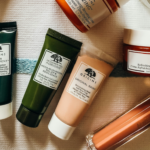From Snapchat filters to Apple’s FaceID security system, facial recognition technology has become just another facet of modern life for some Americans.
But for many others, the idea of having an app or security system that recognizes their face is a non-starter.
In an ongoing CivicScience survey of more than 5,000 Americans ages 13 and up, two-thirds of respondents said they don’t like the idea of their mobile device recognizing their face.
The study also found that three-quarters of Americans said they’re not comfortable with social media apps using facial recognition technology.
Finally, about four-in-five Americans said they don’t want apps to have images of their faces.
Trust in facial recognition decreases with age; Millennials and Gen Z were far more likely to say that they’re comfortable with the technology than their older counterparts. Still, majorities of each of those generations express discomfort with facial recognition.
Men and women were roughly equally likely to be comfortable with facial recognition technology, while comfort rose slightly alongside one’s household income – possibly due to increased access to capable devices.
Apple of Their Eyes (and Nose and Mouth)
Tellingly, those who are favorable toward Apple products (some of which use facial recognition technology as a security feature) are more likely than others to feel comfortable with the tech.
Contrast Apple’s 41% comfortability rate with that of Samsung, which has also begun to support facial recognition technology in some devices:
Clearly, Apple fans are more confident in their preferred company’s use of facial recognition tech than Samsung fans are.
Snapchat Users Over-Index
In a similar situation, one’s comfortability with facial recognition increases alongside use of the social media app Snapchat, which uses the tech to let users apply filters and effects to their selfies and videos.
Again, contrast that with comfortability with facial recognition among Twitter and Facebook users:
The Facebook numbers are particularly interesting, given that the platform is widely known to use facial recognition technology to suggest “tags” for its users’ photographs.
It’s clear that a strong majority of Americans still aren’t comfortable with the idea of apps or devices using facial recognition technology, despite its increasing ubiquity. However, it appears that on devices and platforms where the tech is used most conspicuously – such as on certain Apple devices, and on Snapchat – users may be coming around. It remains to be seen whether Americans will gradually accept the technology as it becomes used by more and more of their favorite platforms and devices.








